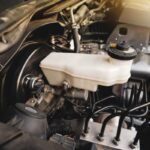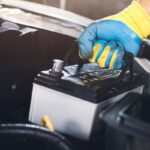Engine braking is a great idea. If you want to slow your vehicle down and have enough space and time (e.g., the stoplight is less than a mile away), then downshifting is an excellent way to do so.
Must Read: bike doctor
This reduces fuel consumption as the engine doesn’t burn more fuel when it downshifts (it only burns fuel when it pushes the accelerator). The engine stops burning fuel when you slow down and downshift. This is better than coasting out of gear or shifting into neutral, as an idling motor always burns fuel.
Downshifting helps reduce brake wear and keeps brakes from overheating.
You can go far, however. You can go too far. Engine braking is a good way to reduce the frequency of your brakes being used, but it should not be replaced.
Never Miss: gettysburg bike week
You can be very smart with engine brakes
While the primary reason engine brakes are used is to reduce fuel consumption, there are other situations such as mountain driving or towing that require engine braking. Engine braking also helps reduce brake wear. Brake pads can quickly heat up when towing or driving in mountains. The hotter they get, the more effective they will become. They may even end up failing at some point.
Engine braking can be used to prevent brake failure and brake fade. Truck drivers are taught to use engine braking extensively in their daily driving. This is a smart way for truck drivers to save fuel and prevent brake failure (especially when driving up mountains).
Also Read: bike pegs
Engine braking does not replace regular brakes. It doesn’t make any sense to use the engine to stop or slow down your vehicle. Even the most experienced truck driver wouldn’t try to stop their truck by downshifting.
Engine Braking Problems
Although engine braking isn’t always bad for your transmission or engine, it can cause damage if it is done incorrectly. Engine braking has its benefits, but you must balance them against other factors.
- Shifting often can increase clutch wear in a manual transmission and can cause high temperatures* for an automatic transmission.
- Engine braking that is too aggressive can cause high engine RPMs, which can lead to piston ring wear.
- It could lead to an accident if you downshift and you don’t use the brakes as much as you should.
- According to our reader, her husband seems to be having too much fun downshifting and should probably use the brakes more often.
Most popular: mikes bike park
It is not a good idea to downshift an automatic transmission while you are going downhill. This is a common mistake as most transmissions are not programmed to allow for manual shifting. A manual control of the gear selection can cause overheating unless they have a’select a shift’ mode or paddleshifters. Although a Honda Pilot transmission is capable of withstanding the abuse, it would not surprise that the transmission became hotter due to constant manual control.




